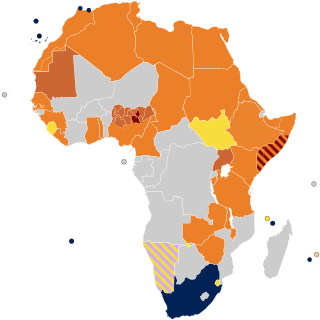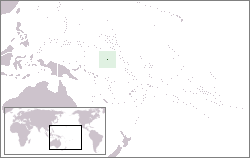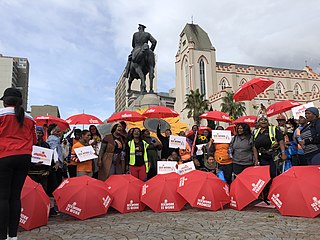Dudgeon v the United Kingdom (1981) was a European Court of Human Rights (ECtHR) case, which held that Section 11 of the Criminal Law Amendment Act 1885 which criminalised male homosexual acts in England, Wales and Northern Ireland violated the European Convention on Human Rights.
Section 377 of the British colonial penal code criminalized all sexual acts "against the order of nature". The law was used to prosecute people engaging in oral and anal sex along with homosexual activity. As per Supreme Court Judgement since 2018 Indian Penal Code Section 377 is used for Convictions of non consensual sexual activities among homosexuals with a minimum of ten years imprisonment extended to life imprisonment. It has been used to criminalize third gender people, such as the apwint in Myanmar. In 2018, British Prime Minister Theresa May acknowledged how the legacies of British colonial anti-sodomy laws continue to persist today in the form of discrimination, violence, and death.

Lesbian, gay, bisexual, and transgender (LGBT) rights in Cyprus have evolved in recent years, but LGBT people still face legal challenges not experienced by non-LGBT residents. Both male and female same-sex sexual activity are legal in Cyprus since 1998, and civil unions which grant several of the rights and benefits of marriage have been legal since December 2015. Conversion therapy was banned in Cyprus in May 2023.

Lesbian, gay, bisexual, and transgender (LGBT) persons in Botswana face legal issues not experienced by non-LGBT citizens. Both female and male same-sex sexual acts have been legal in Botswana since 11 June 2019 after a unanimous ruling by the High Court of Botswana. Despite an appeal by the government, the ruling was upheld by the Botswana Court of Appeal on 29 November 2021.
Section 171 of the Criminal Code of Cyprus was a section of the Cyprus Criminal Code, which was enacted in 1929, that criminalized homosexual acts between consenting male adults. Until 1998, the section read:
"Any person who (a) has carnal knowledge of any person against the order of nature, or (b) permits a male person to have carnal knowledge of him against the order of nature is guilty of a felony and is liable to imprisonment for five years".

With the exceptions of South Africa, Cape Verde, and Mauritius, lesbian, gay, bisexual, and transgender (LGBT) rights in Africa are limited in comparison to the Americas, Western Europe and Oceania.

This is a list of important events relating to the LGBT community from 1801 to 1900. The earliest published studies of lesbian activity were written in the early 19th century.

Oceania is, like other regions, quite diverse in its laws regarding homosexuality. This ranges from significant rights granted to the LGBT community in New Zealand, Australia, Guam, Hawaii, Easter Island, Northern Mariana Islands, Wallis and Futuna, New Caledonia, French Polynesia and Pitcairn Islands to remaining criminal penalties for homosexual activity in 6 countries and one territory. Although acceptance is growing across the Pacific, violence and social stigma remain issues for LGBTI communities. This also leads to problems with healthcare, including access to HIV treatment in countries such as Papua New Guinea and the Solomon Islands where homosexuality is criminalised.

A sodomy law is a law that defines certain sexual acts as crimes. The precise sexual acts meant by the term sodomy are rarely spelled out in the law, but are typically understood by courts to include any sexual act deemed to be "unnatural" or "immoral". Sodomy typically includes anal sex, oral sex, manual sex, and bestiality. In practice, sodomy laws have rarely been enforced against heterosexual couples, and have mostly been used to target homosexual couples.

Marina Yannakoudakis is a member of the European Economic and Social Committee and a former Conservative Member of the European Parliament for London. She was elected at the 2009 European Parliament election. She lost her seat at the 2014 election.
Communist attitudes towards LGBT rights have evolved radically in the 21st century. In the 19th and 20th century, communist parties and Marxist–Leninist states varied on LGBT rights; some Western parties were among the first political parties to support LGBT rights, while others, especially the Soviet Union and its Eastern Bloc, harshly persecuted people of the LGBT community.

Queer Cyprus Association is an LGBTQ rights organisation in Northern Cyprus aimed to deal with criminal law amendments of TRNC which criminalises same-sex relationships. They seek equal human rights including to "fully decriminalize homosexuality, equalize the age of consent and better protect LGBTQ people under the law.”
Human rights in Northern Cyprus are protected by the constitution of Northern Cyprus. However, there have been reports of violations of the human rights of minorities, democratic freedom, freedom from discrimination, freedom from torture, freedom of movement, freedom of religion, freedom of speech, right to education, right to life, right to property, and the rights of displaced persons. The rights of Greek Cypriots displaced by the 1974 Turkish invasion of Cyprus, notably their rights to property and right of return, is one of the focal points of ongoing negotiations for the solution of the Cyprus question.

Lesbian, gay, bisexual, and transgender (LGBT) people living in Nauru may face legal and social challenges not experienced by non-LGBT persons. Same-sex sexual activity has been legal since May 2016, but there are no legal recognition of same-sex unions, or protections against discrimination in the workplace or the provision of goods and services.

The majority of the countries of the Commonwealth of Nations, formerly known as the British Commonwealth, still criminalise sexual acts between consenting adults of the same sex and other forms of sexual orientation, gender identity and expression. Homosexual activity remains a criminal offence in 31 of the 56 sovereign states of the Commonwealth; and legal in only 25.

Decriminalization of homosexuality is the repeal of laws criminalizing same-sex acts between multiple men or multiple women. It has taken place in most of the world, except Africa and the Muslim world.

The decriminalization of sex work is the removal of criminal penalties for sex work. Sex work, the consensual provision of sexual services for money or goods, is criminalized in most countries. Decriminalization is distinct from legalization.

Lesbian, gay, bisexual, and transgender (LGBT) persons in the former Soviet Union face legal challenges not experienced by non-LGBT residents. Since 1 January 2016, in Estonia followed by Latvia, same-sex couples have recognition called a cohabitation agreement that gives the same legal protections available to opposite-sex couples. On 11 January 2019, the Supreme Court of Lithuania ruled that same-sex spouses must be granted residence permits, while a cohabitation agreement is pending.
The history of sexual minorities in Sri Lanka covered in this article dates back to a couple of centuries before the start of the Vikram Samvat era, although it is highly likely that archaeology predating this period exists. There are virtually zero historical records of sexual minorities in the Latin script dating prior to colonialism. The concept of Sri Lanka did not exist prior to colonialism, and the term 'lanka' translates to 'island'.

Some or all sexual acts between men, and less frequently between women, have been classified as a criminal offense in various regions. Most of the time, such laws are unenforced with regard to consensual same-sex conduct, but they nevertheless contribute to police harassment, stigmatization, and violence against homosexual and bisexual people. Other effects include exacerbation of the HIV epidemic due to the criminalization of men who have sex with men, discouraging them from seeking preventative care or treatment for HIV infection.














